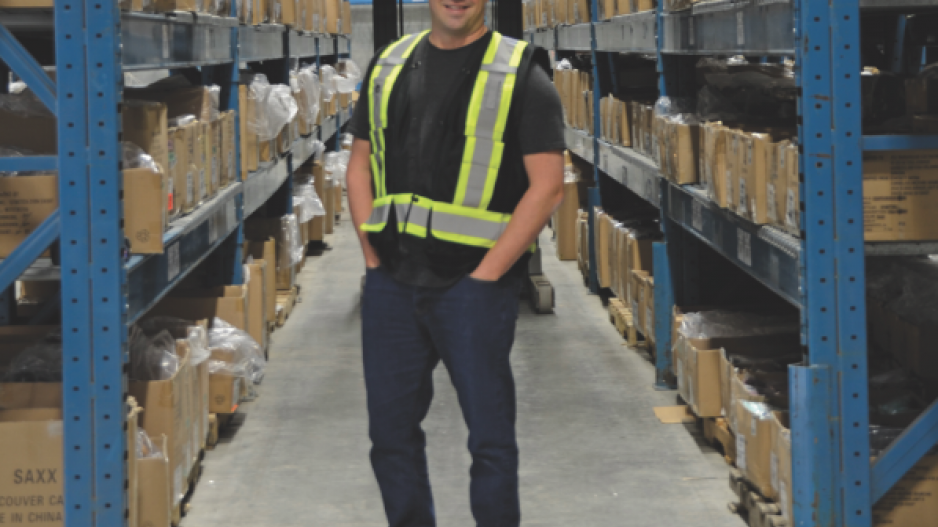The growth in online shopping is changing Metro Vancouver’s commercial real estate landscape as demand for suburban industrial space continues to grow in contrast to bricks-and-mortar retail.
That shift has led to worries about what the trend means for small businesses and land-use planning in cities.
“You’re seeing more of a shift away from the bricks-and-mortar approach of retail and how they can try to take some of that cost centre and make it more profitable to do direct shipping,” said Ryan Kerr, who specializes in industrial sales and leasing for Avison Young.
In a December report, credit union Vancity warned that municipalities will have to think about reworking zoning rules to address empty storefronts.
We’re not quite there yet, said Amy Robinson, executive director of Loco BC, an advocate for independent businesses. But online shopping is a model tilted in favour of larger retailers.
“It will continue to eat away at property tax and income tax,” Robinson said.
A January report from Civic Economics, a Chicago-based economic analysis group, calculated that in the United States in 2014, Amazon (Nasdaq:AMZN) sales had resulted in lost property taxes of US$420 million and lost sales tax of US$625 million.
Both Loco BC and Vancity are warning that small independent businesses in B.C. have failed to adapt to online shopping and risk being overtaken by online shopping giants like Amazon, which now controls 30% of the Canadian online shopping market, according to Vancity.
In its December report, Vancity also warned that real estate investors should take stock of online shopping’s effect on their portfolios.
Retailers like Staples (Nasdaq:SPLS) have recently closed stores in Metro Vancouver while expanding distribution centres, Kerr said.
But bricks-and-mortar retail is still being added to the region at a healthy clip, said Mehdi Shokri with Avison Young’s retail leasing division: around five million square feet of new retail space in Metro Vancouver is expected to be added in the next five or six years.
Whether that space will be easy to lease depends on the location, Shokri said, but he warned that municipalities might be allowing too much retail to be built on land zoned for commercial uses.
Meanwhile, demand for industrial distribution space in Metro Vancouver has been growing, and Amazon is just one player among many.
Amazon and TJX Canada, which owns Winners and Homesense, recently expanded their distribution operations. Amazon added 236,000 square feet in New Westminster; TJX Canada added more than 427,000 square feet in Delta.
Smaller local companies like Lush Cosmetics and Arc’teryx have also been leasing more industrial space.
Developers are capitalizing on the trend by building new industrial spaces without pre-signed tenants, Kerr said, citing several large developments underway that together will add up to 1.9 million square feet in the next two years.

In 2015, Vancouver-based distributor A52 Warehouse moved to a 152,000-square-foot space in a new industrial park in South Surrey. One of the benefits of the move is that the company will likely be able to lease more space in the area in the future, said managing partner and CEO Kevin Kirsten (pictured, right).
A key reason to locate in Metro Vancouver is proximity to the port because most of the items being shipped are made in Asia.
A52 Warehouse provides traditional distribution to retailers and online shopping fulfilment, but it’s the second category that is growing and adding complexity to the business’ operations. Online shopping delivery requires more space and labour than does shipping to stores, because delivering directly to customers involves breaking down shipments to individual pieces. Keeping track of everything requires a team of five in-house software developers.
A52 Warehouse ships across Canada. It uses companies like Canada Post, UPS (NYSE:UPS) and FedEx (NYSE:FDX), both of which have also been focusing on online shopping initiatives over the past few years, including locating dedicated shipping facilities near Vancouver International Airport.
The 120-employee company is competing directly with Amazon, but in contrast to Amazon’s model, A52 Warehouse provides just the shipping logistics, not the sales platform.
Kirsten said his company’s services appeal to businesses that are handling their own online sales and “want to control their brands.”
@jenstden




